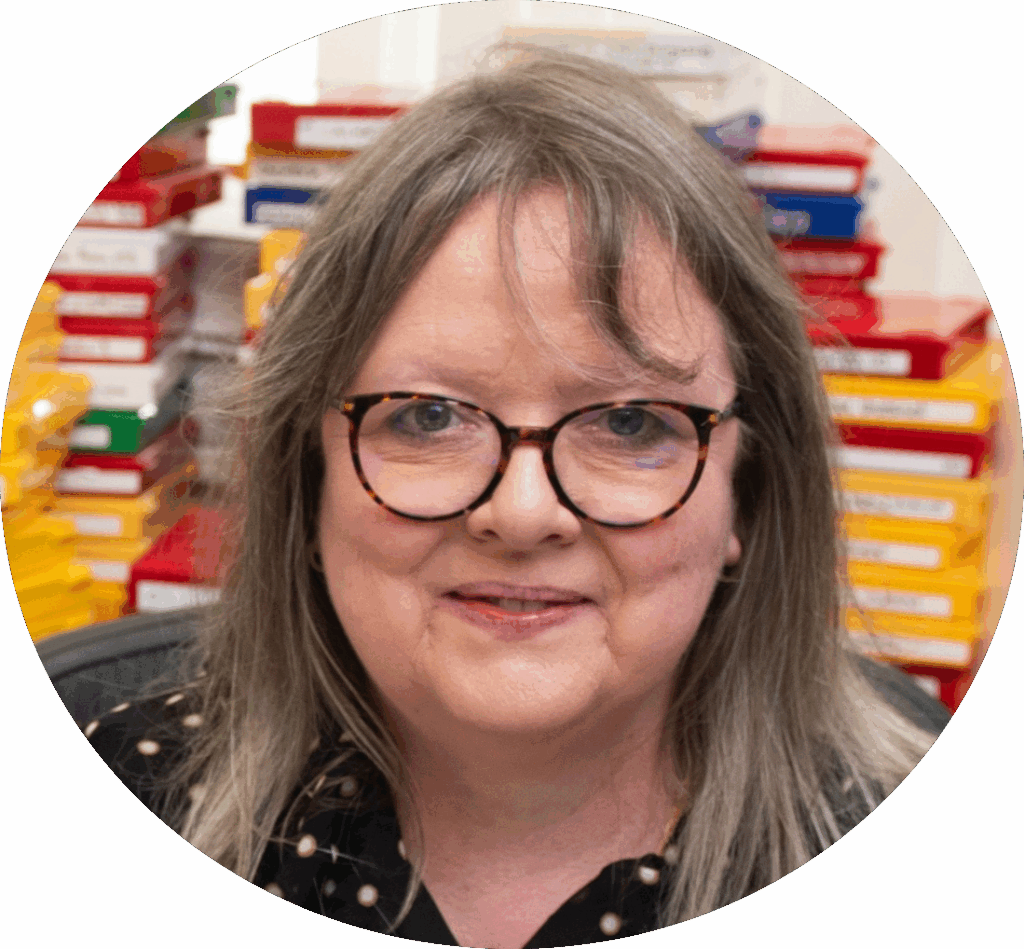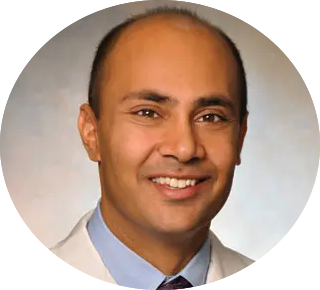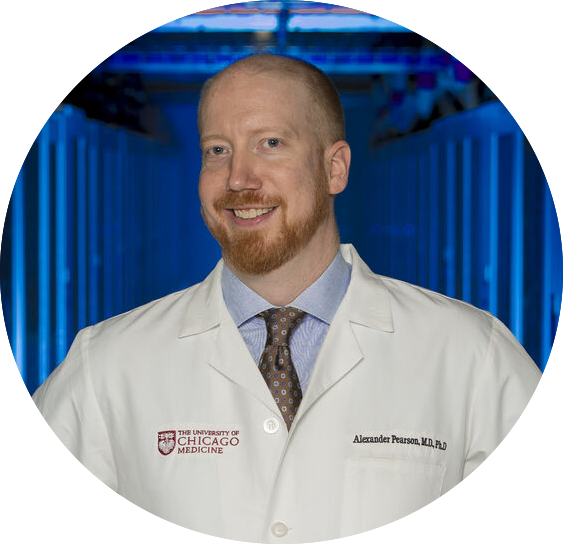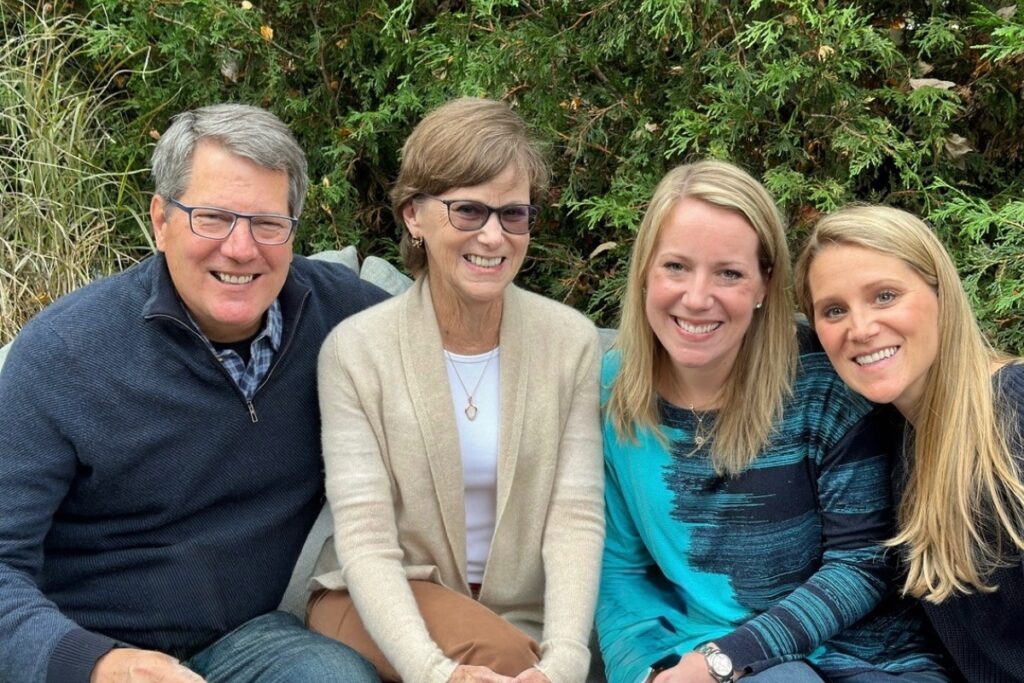“Dream Team” awards supported by the Cancer Research Foundation (CRF) and its Breakthrough Board will convene University of Chicago researchers with wide-ranging expertise. Two teams, each focusing on different types of aggressive cancers, will dive deeply into the mechanisms of cells to understand how tumors sustain themselves and resist treatment.
The role of metabolism in pancreatic cancer
The CRF routinely invests in early-career scientists and supports innovative approaches to cancer research. The inaugural CRF Dream Team Award will go to a team led by Kay Macleod, PhD, Hospira Foundation Professor in the Ben May Department for Cancer Research. The team includes Hening Lin, PhD, the James and Karen Frank Family Professor of Medicine; Alex Muir, PhD; and Simon Schwörer, PhD, who are recognized experts in chemical biology, tumor metabolism, and the tumor microenvironment, respectively. Scientists from the Metabolomics Core Facility—specialists in the advanced equipment systems needed to investigate functions inside a cell—will support the team.
Macleod and her team will investigate the mechanics of pancreatic ductal adenocarcinoma (PDAC), the most common form of pancreatic cancer. PDAC has the worst survival rate of any cancer following diagnosis and is predicted to become the second leading cause of cancer deaths in the US by 2030.
Macleod and her team have observed that, as PDAC tumors develop, they rewire lipid metabolism in both the tumor and the patient, resulting in increased tumor growth, malignant progression, and therapy resistance. The CRF Dream Team aims to identify the specific lipids that PDAC tumors depend on. Learning why and how these tumors depend on these lipids will point the way toward developing an effective means of blocking their aid to tumor growth. Novel therapies targeting lipid metabolism and mechanisms specific to PDAC could complement treatments addressing the lipid content of a patient’s diet. These findings could potentially apply to other cancers as well.

“The increasing incidence of pancreatic cancer is partly driven by a Western diet heavy in fat content, but how this promotes the growth and metastasis of this insidious disease is not understood,” Macleod said. “This award from the CRF will allow our team of complementary experts to carry out innovative research aimed at targeting the lipid dependency of pancreatic cancer cells, hopefully leading to more effective treatments for PDAC and better outcomes in terms of long-term survival of patients.”
Photo: Kay Macleod, PhD
Helping more head and neck cancers respond to immunotherapies
The Breakthrough Board of the CRF invests in research programs with high potential. The inaugural Breakthrough Board Dream Team Awardwill be matched by the University of Chicago Medicine Comprehensive Cancer Center, and go to a team led by Nishant Agrawal, MD, co-director of Head and Neck Surgical Oncology and Alexander Pearson, MD, PhD, associate professor of medicine and member of the Center for Computational Medicine and Clinical Artificial Intelligence.
Agrawal, Pearson, and their team will focus on head and neck squamous cell carcinoma (HNSCC), particularly changes at the molecular level that allow cancer cells to circumvent the immune system. HNSCC currently has a five-year survival rate of around 50 percent—a statistic that has not changed over the past two decades. Only around 20 percent of HNSCC patients respond to immunotherapies, and some will see the cancer return. The team proposes that various alterations in patients’ DNA could explain both the lack of response to immunotherapies in some patients and the recurrence of cancer in others.

“This award gives us the opportunity to tackle why so many patients do not benefit from immunotherapy—one of the toughest challenges in head and neck cancer,” Agrawal said. “By uncovering how these cancers evade the immune system and develop resistance, we are poised to make discoveries that will change how we treat patients with head and neck cancer.”
Photo: Nishant Agrawal, MD
Agrawal and Pearson are joined by Yuxuan Miao, PhD; Evgeny Izumchenko, PhD; Mark Lingen, DDS, PhD; Eric Polley, PhD; and Ari Rosenberg, MD, who specialize in cancer immunology, the translation of scientific studies into therapies, therapeutic resistance, biostatistics, and novel therapies, respectively.
“Our team will complement the leading-edge head and neck cancer research and clinical trials at the Comprehensive Cancer Center with emerging artificial intelligence tools,” Pearson said. “This synergy between different disciplines working together will improve our understanding of this devastating disease and help create new treatment strategies.”
Photo: Alexander T. Pearson, MD, PhD

Agrawal added, “This project is only possible through team science, and the award empowers us to accelerate new treatments through collaboration.”
The CRF and the Breakthrough Board recognize that an interdisciplinary team can have a faster and larger impact than any one researcher working independently. Investment in team science can potentially shorten the timeline from laboratory research to clinical trials.
“No one individual can solve the complexities of cancer alone. Progress requires the concerted efforts of people with different expertise coming together with a common purpose,” said Kunle Odunsi, MD, PhD, director of the Comprehensive Cancer Center. “Team science fosters the cross-pollination of ideas, accelerates innovation, and helps move discoveries from the laboratory to the clinic more quickly.”




